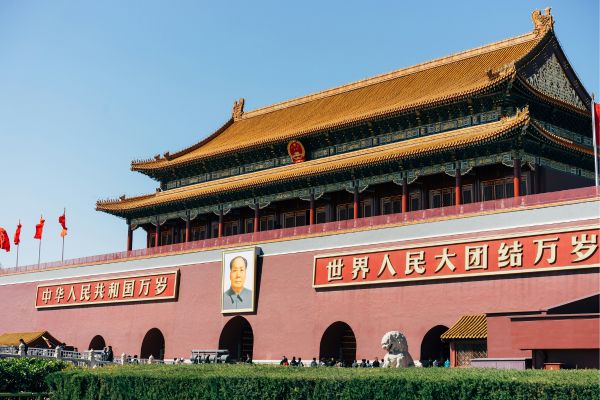
Beijing Fourth Intermediate People’s Court (B.F.I.P.C.), the most renowned court in China that has jurisdiction over foreign-related cases, can probably be seen as the counterpart of United States District Court for the Southern District of New York (S.D.N.Y.) in China.
B.F.I.P.C. is one of the four intermediate people’s courts in Beijing. The other three courts only have jurisdiction over specific cases in a certain area of Beijing, while B.F.I.P.C. has jurisdiction over most of foreign-related civil and commercial cases there.
Since Feb. 2018, the following cases under the jurisdiction of Beijing courts will be accepted by B.F.I.P.C.:
(1) First-instance commercial cases involving foreign countries, Hong Kong S.A.R., Macao S.A.R., and Taiwan region with the amount in controversy less than 200 million CNY;
(2) Cases of application for determining the validity of arbitration agreements, cases of application for setting aside arbitral awards (excluding employment arbitration);
(3) Cases of application for the recognition and enforcement of foreign arbitral awards;
(4) Cases of application for the recognition and enforcement of arbitral awards of Hong Kong S.A.R., Macao S.A.R., and Taiwan region;
(5) Cases of application for the recognition and enforcement of foreign judgments;
(6) Cases of application for the recognition and enforcement of judgments of Hong Kong S.A.R., Macao S.A.R., and Taiwan region;
(7) First-instance civil cases related to loan contract disputes, and insurance disputes.
What does this mean?
1. B.F.I.P.C. has jurisdiction over almost all foreign-related commercial cases in Beijing
Most of Beijing’s foreign-related commercial disputes are under the jurisdiction of B.F.I.P.C., and only a few cases with an amount in controversy more than 200 million CNY are heard by the Beijing High People’s Court or the Supreme People’s Court. Other intermediate courts in Beijing no longer have jurisdiction over foreign-related cases.
Therefore, if you have a cross-border lawsuit in Beijing, you probably have to deal with B.F.I.P.C..
2. B.F.I.P.C. has jurisdiction over most of the cross-border arbitration cases in China
If the arbitration institution is located in Beijing, the cases involving the application for determining the validity of arbitration agreements and the application for setting aside arbitral awards will be under the jurisdiction of B.F.I.P.C..
What arbitration institutions are located in Beijing?
There are three arbitration institutions in Beijing, including China International Economic and Trade Arbitration Commission (CIETAC), Beijing Arbitration Commission (BAC), and China Maritime Arbitration Commission (CMAC).
These three institutions are the top 3 arbitration institutions dealing with cross-border disputes in China. They account for one-fifth of China’s arbitration market share, and in 2018, the amount in controversy of the arbitration cases accepted by them reached 20 billion CNY. Most cross-border arbitration cases in China are handled by these three arbitration institutions.
In other words, if you wish to conduct cross-border arbitration in China, these three arbitration institutions are likely to be on your recommendation list, and therefore you are likely to meet B.F.I.P.C..
Not long ago, B.F.I.P.C. and China Arbitration Institute (CAI) of China University of Political Science and Law jointly released the Big Data Research Report on Judicial Review of Arbitration Cases of Beijing Fourth Intermediate People’s Court (北京市第四中级人民法院仲裁司法审查案件大数据研究报告) in December 2019. Our earlier post discussed how B.F.I.P.C. review cases related to China’s top arbitration institutions.
3. B.F.I.P.C. has jurisdiction over most cases of recognition and enforcement of foreign judgments and arbitral awards with China’s largest enterprises as judgment debtors.
The headquarters of China’s largest enterprises are mostly located in Beijing. As Fortune’s Global 500 shows, Chinese companies account for 129, 56 of which are headquartered in Beijing. Besides, of the 97 state-owned enterprises controlled by the central government, only 21 of them have headquarters outside Beijing.
Therefore, if you take these enterprises as judgment debtors, you are likely to apply to the court in Beijing for recognition and enforcement of foreign judgments and arbitral awards. At this point, these cases are all under the jurisdiction of B.F.I.P.C..
4. B.F.I.P.C. has jurisdiction over most of the financial disputes with a huge amount in controversy.
China’s financial regulators are all based in Beijing, so are China’s largest banks and their headquarters. By the end of 2018, the total value of Beijing’s financial industry was about 140 trillion CNY, accounting for 45% of that of China’s financial industry.
Loan disputes and insurance disputes related to these financial assets are all under the jurisdiction of B.F.I.P.C..
B.F.I.P.C. has obtained jurisdiction over these cases since Feb. 2018. Before that, B.F.I.P.C. was named "Beijing Railway Transportation Court"(北京铁路运输法院), and only had jurisdiction over railway transportation disputes. B.F.I.P.C. was restructured in 2018, and has greatly improved its ability to hear foreign-related commercial cases.
In the future, with B.F.I.P.C. accepting more and more cases, we expect that it will frequently appear in the media, just like S.D.N.Y. in the United States.
Cover Photo by Rita Chou on(https://unsplash.com/@rainrainbowchou) Unsplash
Contributors: Guodong Du 杜国栋







